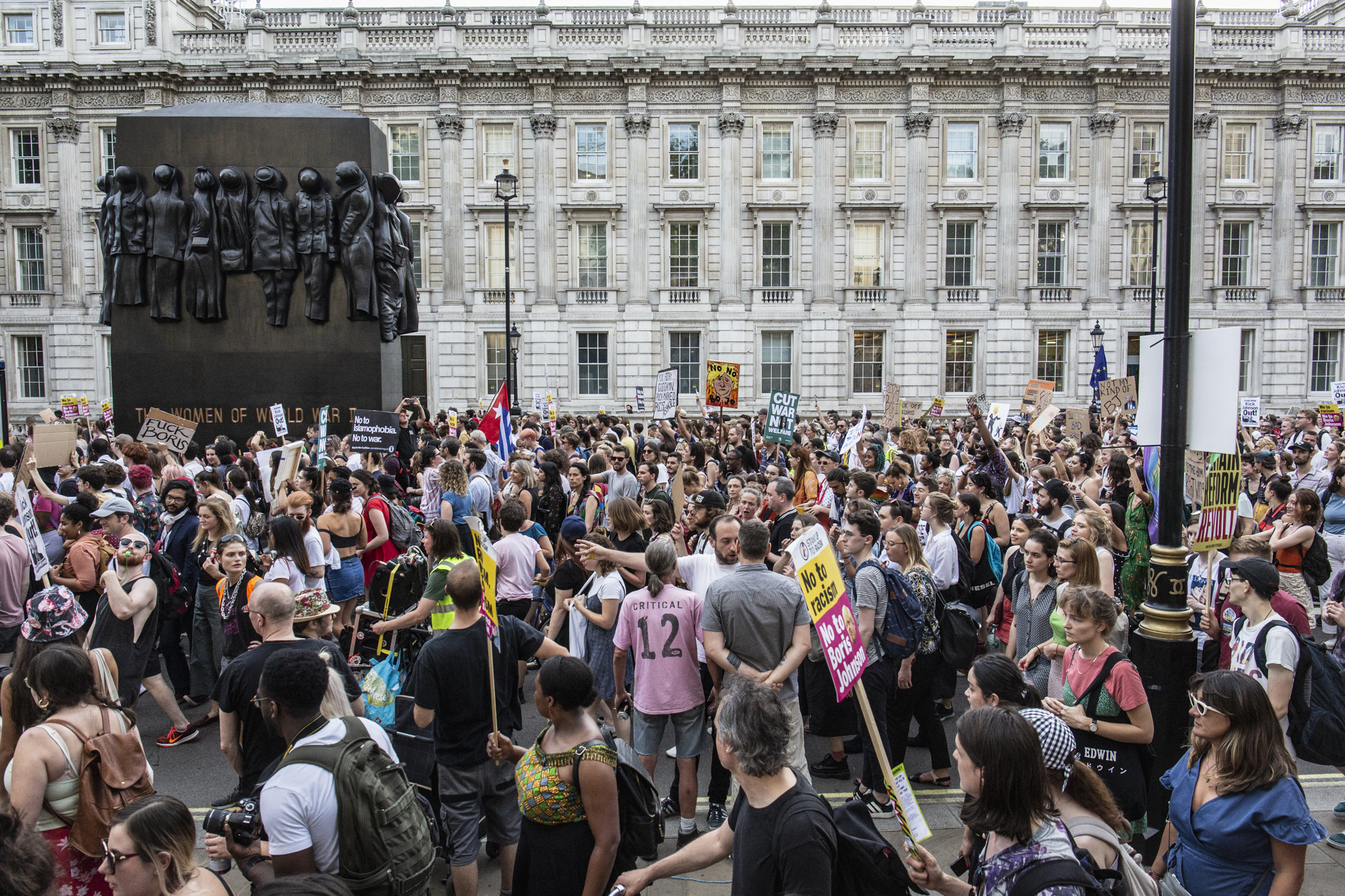
In 1974, the miners were on strike. After years of real terms pay cuts, they wanted a 35% hike. The strike proved so powerful it forced the introduction of a three-day working week to stave off fuel shortages.
Successful strikes in 1969 and 1972 had proven the miners could bring the country to a standstill if they wanted to. Set piece confrontations like the Battle of Saltley Gate – in which 15,000 workers overran police to shut down one of the last sources of fuel still operating – had taught them they could take on the ruling class and win.
The Tory prime minister, Edward Heath, realised as much. He decided the only way he could beat the strike and give himself a mandate to smash the unions was by winning a general election in the middle of the chaos. So, he called one. His slogan was: ‘Who governs Britain?’
The answer, it turned out, was ‘not you’. Heath’s Tories were replaced by a minority Labour government led by Harold Wilson. The miners had forced Heath out.
Today, we’re at the start of a new phase in the lineage of post-2008 Tory regimes. The ruling party has gone from implementing brutal austerity, to failing to manage Brexit, and now, in all likelihood, to melting into a sticky puddle like an ice lolly on the Central line.
The effects of this decade are clear: Britain has been plunged into a profound social crisis as a result of a class war waged from the top down. 14 million people, a fifth of the population, are in poverty. As if that wasn’t enough, we’re also facing the impending doom of climate collapse.
Even Prince Charles understands the immediacy of the problem, arguing that “the next 18 months will decide our ability to keep climate change to survivable levels” at a recent meeting of Commonwealth foreign ministers.
When even our future monarch understands the scale of the crisis, we are in a strange place. But still nothing happens, and the temperature keeps on rising.
Socialism is the only viable answer to the social crisis and climate collapse. The Labour party’s mild-mannered social democratic program is a start, however small, along that road – and if it’s combined with a more ambitious working class movement from below, it seems like our best shot.
If there was ever a time to bring down a government, it’s now. The need for radical change is escalating, and Boris Johnson is in a bad position. So, what lessons can we learn from 1974 about what is to be done, and what comes next?
The first lesson is that we need to shut things down. Britain’s coal miners had a unique position in the British economy. No coal meant no power, which had a huge knock on effect on every single other sector of the economy. They used that leverage to force the Heath government into a crisis.
Modern British capitalism relies on increasingly complicated chains of logistics that enable ‘just in time’ production and ‘lean’ supply chains. Workers in these logistical systems, from warehouse operatives to airport workers, could exert huge political power. But it isn’t just high-leverage workers who can force political change. As Extinction Rebellion and the gilets jaunes in France have shown, social movements can also generate leverage by shutting down vital infrastructure. The key is to identify a weak spot, concentrate your forces, and grind the system to a halt.
The second lesson is that we need a plan to take on capital. The Wilson government, elected first as a minority in February and then as a majority in October 1974, was supposed to be a radical one. The manifesto claimed Labour would “bring about a fundamental and irreversible shift in the balance of wealth and power in favour of working people”. Tony Benn was secretary of state for industry, and planned to nationalise huge corporations under nascent forms of workers’ control. But the new government had no strategy to deal with the aggressive stance of British capital and the unelected parts of the state. It became isolated and defeated, and after losing the 1979 election Thatcher took over. Labour can’t afford to make the same mistakes again.
If the Tories are forced into an early general election and Labour forms a government, it will have to be an aggressive government that takes its chances, faces down its enemies, and relies on the power of workers as well as the control of parliament.
–
This week on a hot summer evening, 7,000 people took to the streets of London against Johnson’s new government. What comes next is hard to predict. Every option seems unlikely – a new Brexit deal, no deal, a snap election, a vote of no confidence – but something has to happen.
If the socialist left wants to win, it will have to refuse to fight a Brexit culture war on Johnson’s preferred terrain, and instead fight a class war for a transformational program. The first step in that direction is a broad, disruptive movement to demand a general election. Let’s party like it’s 1974.